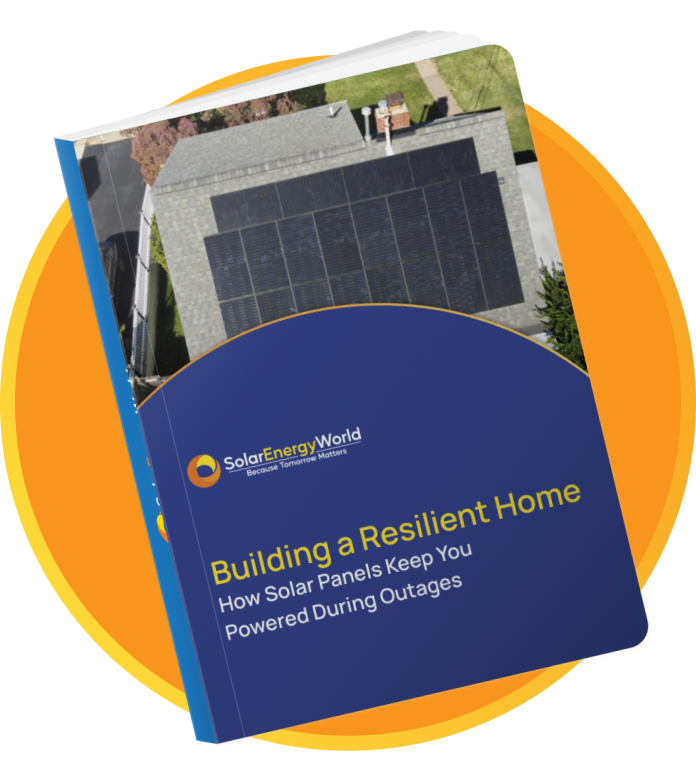Article
Can Solar Panels Protect Your Home’s Power During a Fuel Shortage?

As global events cause fluctuations in energy availability, many homeowners are beginning to wonder: “What if there’s a fuel shortage or a power outage? Could my home end up powerless?” For those relying on gas or electricity, this could be a pressing concern. One solution might be turning to renewable energy sources like solar panels and solar energy storage systems.
Seasonal Peaks in Energy Consumption
Whether you use gas or another source of electricity to power your home, you are probably aware that your consumption (and your energy bills) has two seasonal peaks. In the winter months if you live in the North East, you very likely turn up the heat and since the days are shorter, use more electricity to light your home. In the summer months, across the country, air conditioning usage goes up which of course needs electricity to work.
When it comes to natural gas in particular, the U.S. Energy Information Administration’s (EIA) most recent surveys of energy use in the U.S. residential sector shows natural gas accounts for 68% of heating consumption in homes during the colder months. In the summer, U.S. electricity generation is highest in July. The EIA found that in that month, natural gas generates approximately 42% of the nation’s electricity through natural gas-fired power plants.
The Impact of Fuel Shortages on Different Energy Sources
If your utility company gets its power from a coal-fired power plant or nuclear power, a gas shortage may not affect you, but if the grid shuts down due to another cyberattack or natural disaster it is still highly likely you will experience an outage.
So, what can you do to mitigate your risk? Of course you could purchase a gas generator and use that to power your home but if there is a petroleum shortage again, that may not help you.
The Role of Solar Panels During Power Outages
Today’s solar panel systems are connected to the grid. If your home has solar panels, you have already experienced all the cost savings solar gives you and have probably enjoyed watching your power meter run backwards because you know when it does, you are saving and often earning money. When your solar panels generate more electricity than you use that power goes back into the grid, so the utility company pays you for that. This is called net-metering and is how you have been able to end up with low or even zero utility costs.

How Solar Panels Keep You Powered During Outages
But with this system, if the grid goes down, you won’t have power either, unless you have a solar battery installed along with your solar system. If you have both solar panels and solar energy storage, you will still have power. How much power you will have depends on how much power you want and how many batteries you have installed. One of the best features of a solar energy storage system is that no matter how big it is, it won’t be adding more carbon emissions to our atmosphere. Have you ever smelled the fumes that come out of a gas-powered generator? Yuck!
The Advantages of Tesla Powerwall During Power Outages
Tesla Powerwall, a popular choice for solar energy storage, serves as a reliable backup when the grid goes down. It stores excess power generated by your solar panels, allowing you to maintain power supply during outages. And unlike gas generators, the Tesla Powerwall operates silently and doesn’t produce harmful emissions.
Securing Your Home’s Power with Solar Panels and Solar Energy Storage
Solar panels alone can’t prevent a power outage during a fuel shortage. But when paired with an efficient solar energy storage system like the Tesla Powerwall, you’re taking a significant step towards energy independence. This combination doesn’t just protect your home during energy crises—it’s also an environmentally-friendly and potentially cost-saving solution for any homeowner.
Want a Free Solar Estimate?
Fill out the form to get started today.

